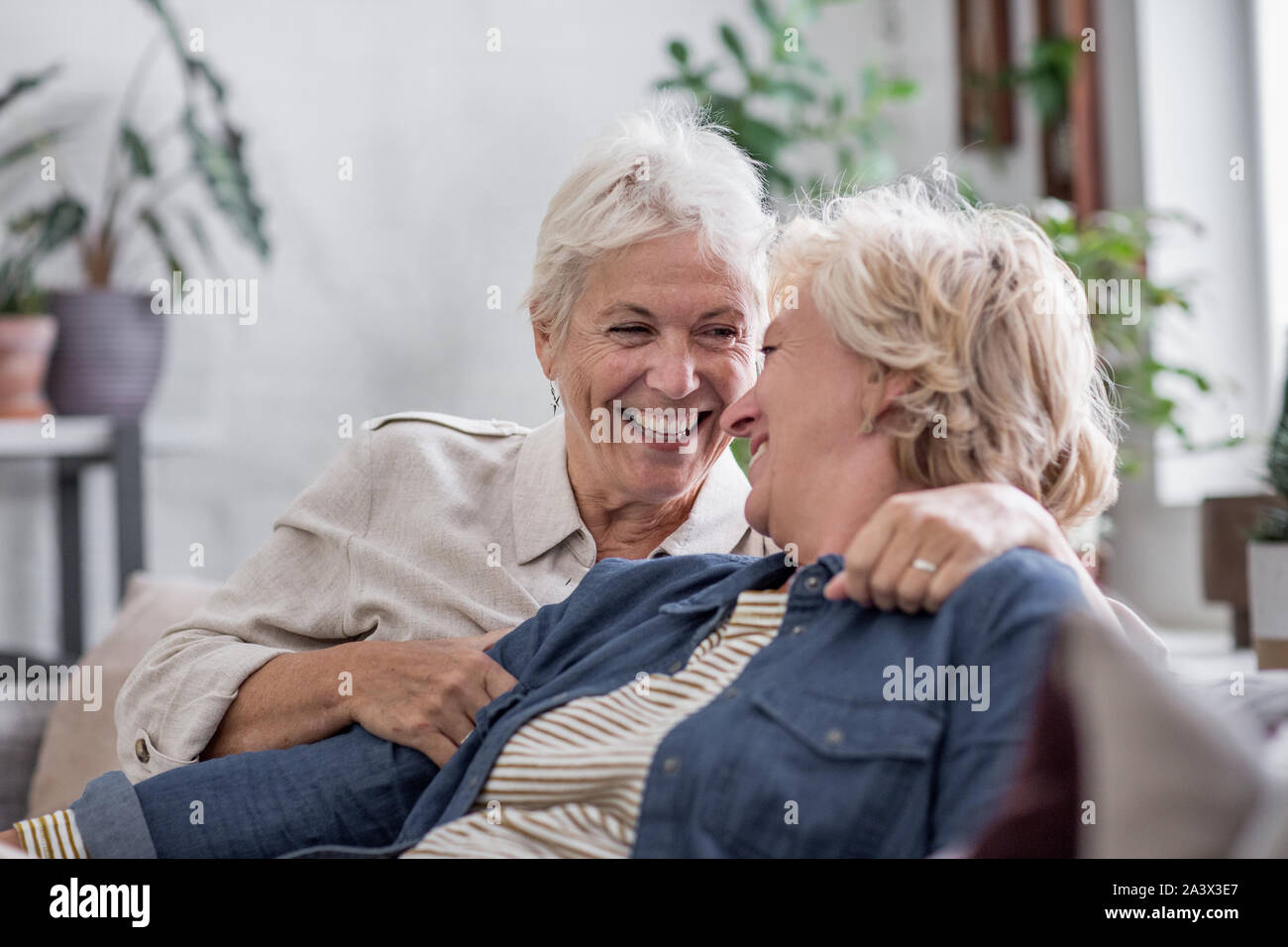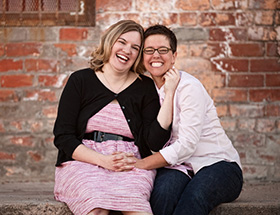I always understood my mum ended up being gay. When I had been around 12 yrs old, I would run-around the playing field offering to my schoolmates.
“My personal mum’s a lesbian!” I’d yell.

My personal reasoning was actually that it made me much more fascinating. Or my mum had drilled it into me that becoming a lesbian should be a way to obtain satisfaction, and that I got that extremely practically.
two decades later on, i came across myself personally performing a PhD in the social history of Melbourne’s interior metropolitan countercultures during sixties and seventies. I became choosing people that had stayed in Carlton and Fitzroy on these many years, as I was actually enthusiastic about discovering about the modern metropolitan culture that I was raised in.
During this time, people in these places pursued a freer, a lot more libertarian life style. They certainly were regularly exploring their particular sex, imagination, activism and intellectualism.
These communities happened to be especially significant for ladies surviving in share-houses or with friends; it actually was becoming common and acknowledged for ladies to call home by themselves of family members or marital residence.
Image: Molly Mckew’s mama, taken by author
I
n 1990, after divorcing my dad, my mum transferred to Brunswick aged 30. Right here, she encountered feminist politics and lesbian activism. She started to develop into the woman creativeness and intellectualism after spending almost all of the woman 20s being a married mama.
Encouraged by my PhD interviews, I made the decision to inquire of the lady all about it. We hoped to reconcile the woman recollections with my very own memories of this time. I also desired to get a fuller image of in which feminism and activism is at in 1990s Melbourne; a neglected decade in histories of lgbt activism.
During this time period, Brunswick was tremendously stylish area that was close enough to my mum’s exterior suburbs college without being a residential district hellscape. We lived in a poky terrace household on Albert Street, close to a milk club in which I spent my regular 10c pocket money on two delicious Strawberries & lotion lollies.
Nearby Sydney path was actually dotted with Greek and Turkish cafes, where my personal mum would sometimes get us hot drinks and desserts. We generally consumed incredibly mundane food from regional wellness food stores â there is nothing that can match getting gaslit by carob on Easter Sunday.
A
s someone that is afflicted with FOMO (concern with getting left behind), I was interested in whether my mum think it is lonely thinking of moving a fresh spot where she realized no person. My personal mum laughs aloud.
“I became not at all lonely!” she claims. “It was the eve of a revolution! Ladies wished to assemble and discuss their own tales of oppression from guys additionally the patriarchy.”
And she was grateful not to be around guys. “I didn’t build relationships any males for a long time.”
The epicentre of her activist globe had been La Trobe college. There clearly was a passionate ladies’ Officer, also a ladies’ place in beginner Union, in which my personal mum invested some the woman time planning presentations and revealing tales.
She glows towards activist scene at Los Angeles Trobe.
“It felt like a transformation was about to occur so we had to change our lives and stay element of it. Females had been developing and marriages had been becoming broken.”
The ladies she found had been discussing experiences they’d never really had the chance to atmosphere before.
“The women’s researches training course I found myself carrying out was more like a difficult, conscious-raising party,” she states.
M
y mum remembers the dark Cat cafe in Fitzroy fondly, a still-operating cafe that launched in 1981. It was one of the first on Brunswick Street; it had been “where everybody else moved”. She also frequented Friends for the Earth in Collingwood, where many rallies happened to be organized.
There seemed to be a lesbian open house in Fitzroy and a lesbian mom’s party in Northcote. The mother’s group supplied an area to talk about things such as coming out towards kiddies, lovers arriving at school events and “the real-life effects of being gay in a society that decided not to shield gay individuals”.
That was the aim of feminist activism in the past? My personal mum tells me it actually was very similar as today â a baseline fight for equivalence.
“We wished lots of practical change. We talked a great deal about equivalent pay, childcare, and common societal equivalence; like females becoming enabled in bars being equal to males in all respects.”
T
he “personal is actually governmental” ended up being the message and “women took this truly honestly”.
It may sound common, regardless of not being allowed in pubs (thank goodness). I ask her what feminist tradition was like in the past â assuming it absolutely was most likely very different to your pop-culture pushed, referential and irony-addled feminism of 2022.
My personal mum remembers feminist culture as “loud, away, defiant as well as on the road”. At the get back the Night rallies, a night-time march aiming to draw awareness of women’s general public protection (or shortage of), mum recalls this fury.
“I yelled at some Christians watching the march that Christ had been the biggest prick of. I found myself angry at patriarchy and [that] the chapel had been about guys as well as their power.”
M
y mum was a student in the lesbian world, which she experienced through institution, Friends of Earth and the Shrew â Melbourne’s basic feminist bookstore.
From the their having many extremely sort girlfriends. One I want to enjoy
Video Hits
anytime I went over and fed myself dizzyingly sugary meals. As a youngster, I went to lesbian rallies and aided to operate stalls offering tapes of Mum’s own really love songs and activist anthems.
“Lesbians had been seen as lacking and strange and not are respected,” she states about social perceptions at that time.

“Lesbian ladies weren’t really noticeable in culture as you might get sacked to be gay at that time.”
The writer Molly Mckew as a young child at her mother’s marketplace stall. Photographer as yet not known, circa 1991
A
significant activism during the time was about destigmatising lesbianism by increasing its visibility and normalcy â which I imagine In addition was actually attempting to do by telling all my schoolmates.
“The more mature lesbians skilled pity and sometimes assault inside their connections â many had key interactions,” Mum tells me.
We ask whether she ever before experienced stigma or discrimination, or whether the woman modern milieu supplied their with mental protection.
“I became out oftentimes, but not always feeling comfortable,” she answers. Discrimination still took place.
“I happened to be as soon as pulled over by a police because I had a lesbian mothers sign back at my vehicle. There is no reason and that I got a warning, despite the fact that I becamen’t rushing anyway!”
L
ike all activist views, or any world whatsoever, there was clearly division. There is stress between “newly coming-out lesbians, âbaby dykes’ and ladies who was in fact the main gay tradition for some time”.
Separatism ended up being mentioned many in the past. Often if a lesbian or feminist had a daughter, or failed to reside in a female-only household, it triggered division.
There were in addition class tensions in the scene, which, although diverse, had been reigned over by middle-class white females. My mum identifies these tensions because beginnings of attempts at intersectionality â something characterises present-day feminist discourse.
“folks started initially to critique the motion if you are exclusionary or classist. When I started initially to do my personal songs at celebrations and events, some women confronted me [about being] a middle-class feminist because we owned a property together with an automible. It absolutely was mentioned behind my personal straight back that I had gotten money from my earlier commitment with one. Therefore had been I a genuine feminist?”
But my personal mum’s daunting recollections are of a consuming collective fuel. She informs me that her tunes were expressions of values when it comes to those sectors; fairness, openness and addition. “it absolutely was everyone else collectively, yelling for change”.
W
hen I became about eight, we moved far from Brunswick and to a house in Melbourne’s outside east. My personal mum mostly eliminated by herself from revolutionary milieu she’d held it’s place in and turned into a lot more spirituality focused.
We still decided to go to women’s witch teams sometimes. I recall the sharp odor of smoke as soon as the team frontrunner’s extended black hair caught flame in the middle of a forest ritual. “Sorry to traumatise you!” my mum laughs.
We stroll to a regional cafe and get lunch. The coziness of Mum’s existence breaks me personally and I commence to weep about a recently available separation with a guy. But her reminder of exactly how self-reliance is actually a hard-won liberty and privilege chooses me personally right up once again.
I am reminded that while we cultivate our very own strength, flexibility and lots of facets, you can find communities that constantly will hold you.
Molly Mckew is a writer and artist from Melbourne, whom in 2019 completed a PhD throughout the countercultures on the sixties and seventies in urban Melbourne. She actually is been posted into the
Discussion
and
Overland
also co-authored a chapter into the collection
Urban Australian Continent and Post-Punk: Discovering Canines in Area
,
modified by David Nichols and Sophie Perillo. It is possible to follow this lady on Instagram
right here.